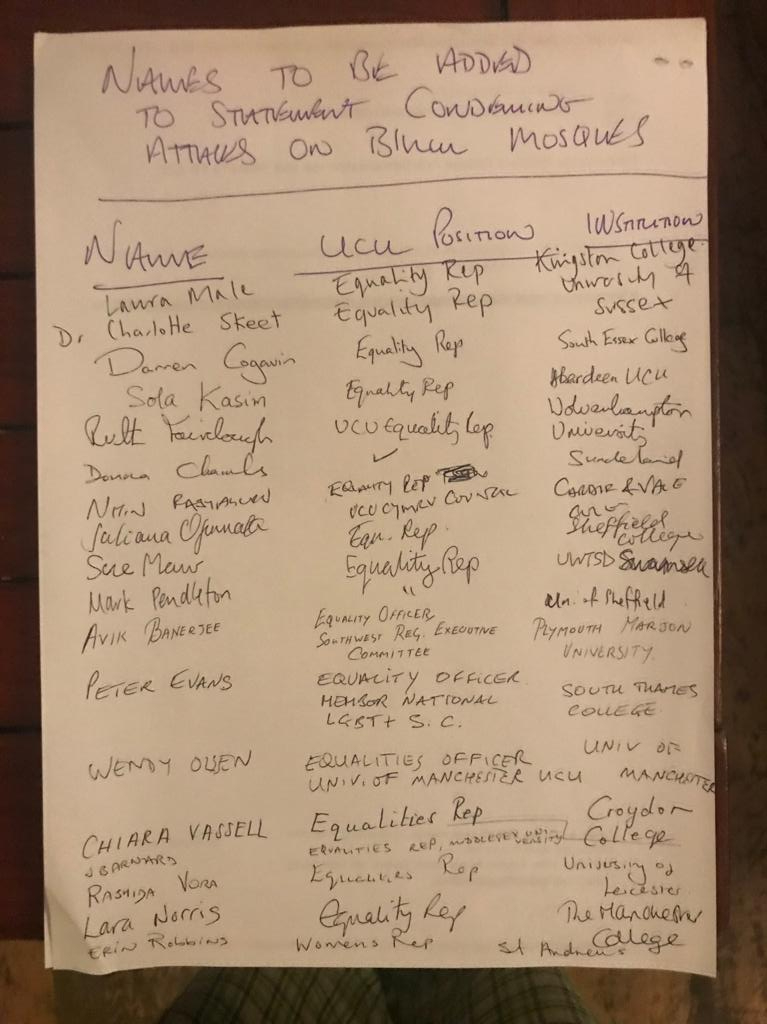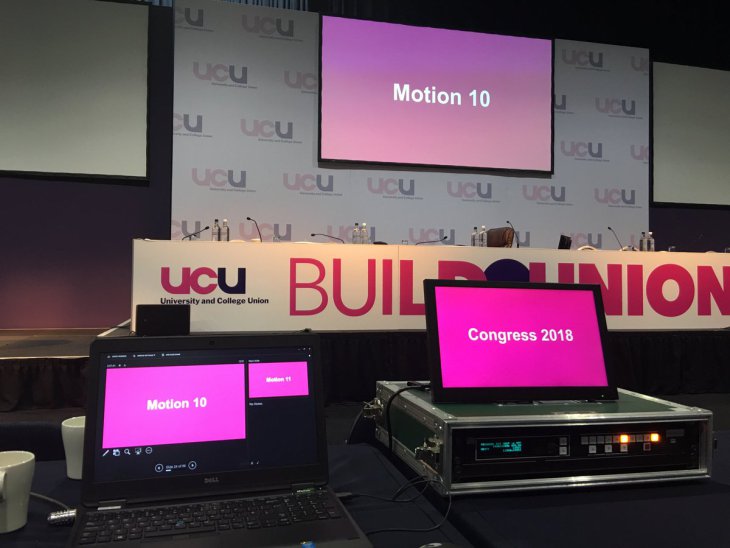
It’s been a couple of chaotic weeks since UCU’s annual and most explosive yet congress was held in Manchester. I’ve been caught up in student completions and some family issues so not yet had time to write some reflections on what has happened but I wanted to get my thoughts out before too much more time passes for me to fully process it all.
It was always going to be a different event this year. Firstly, there have been unprecedented events. We have had to organise under the restrictions of the new trades union bill and where this has been successful the sheer workload of getting the vote out and the hurdle of having to repeat this has meant the members have voted for and officials have agreed extensive strike action – a possibility always denied pre TU bill because of the belief members would not sustain it. In pre-92 universities we have had huge picket lines as a young, newly active and energised precarious workforce have led the battle for pensions. Elsewhere in FE, where pay ballots have been achieved there have been pickets for days in the snow and rain, again only known at local disputes in left branches like Lambeth or Tower Hamlets historically in UCU. There is a whole other post to look at the differences between HE and FE at the moment to be written but it would eat up paragraphs here. Suffice to say that while FE is years into a corporatisation of culture in which working class education has been transformed ideologically from a social participation struggle to a product which can be made much cheaper than “standard” education through cutting to the bone the knowledge production process, HE is teetering on marketisation but retains a notion of professionalism and academic independence (albeit under permanent attack) in its outlook. Regardless of this, there is energy to organise and fight distributed in various different ways in both.
Other than the scale of the fight back, the other unprecedented event this year has been that the newly emerging activist layer is not prepared to allow action to be bureacratically managed without a struggle. There have been two wranglings over the future of the USS dispute: firstly, the mobilisation of branches and activists to reject the first deal under the banner of #NoCapitulation . A combination of live links between activists through the currency of the social media they were engaged in and the live connections of the picket line saw a huge demonstration at HEC where the leadership were forced to reject what had previously been assumed to be a smooth settlement, and the strikes continued. The second wrangling was more carefully managed, and when a second deal proposing what appears from my non-expert position as an FE activist to be a working group was proposed, a sequence of mailings were sent by GS Sally Hunt apparently acting alone without consultation of the HE executive or the branch representatives calling for a yes vote, and the USS mobilisation was effectively stopped in its tracks.
Meanwhile over in FE, more novel events were taking place. The small number of branches who had successfully mobilised for extensive pay action had infuriated the employers group (the AOC) who were now threatening to end national bargaining on pay. We saw a flurry of activity at head office, with all steam ahead for a national mobilisation where all branches would be supported in building for national strike action in response. Now, technically, we have all already been supported nationally, but there was a real drive going on which looked something like the national campaign East Midlands FE committee (who fall under my constituency of the Midlands FE for NEC) have been asking for in motions to congress for some time – repeated mailings, instructions, clear time frames, reminders, repeated support from the GS – all happening in a very short space of time in the build up to congress.
When the papers were released I was not particularly surprised to see that there was a backlash from HE branches involved in the USS dispute. I have seen that there has been a lot of frustration at Keele and Warwick, two branches in the region I was chairing at the time of the dispute, over the way that decisions were being made, and more generally have been hearing calls for transparency and democratic accountability in decision making. At the last NEC we were presented with a motion coming from then VP Douglas Chalmers condemning leaking of documents related to the HEC and the USS dispute. I joined Rachel Cohen in trying to amend this to acknowledge the need for members who make sacrifices to feel there is transparency in the process. I stated that there is a perceived hierarchy between the membership and the the leadership and that this is damaging to collectivity. I was told by Douglas that this hierarchy is necessary.
Appearing on the order of business for congress were two contentious motions: motion 10, calling for the GS to resign, and motion 11, calling for her to be censured.
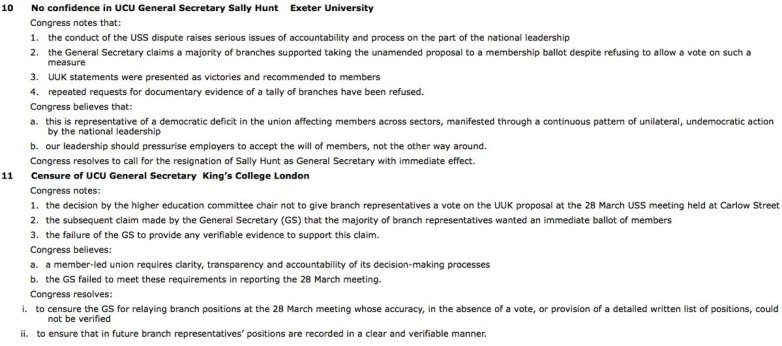
Tuesday: the storm gathers
I arrived at congress on Tuesday afternoon where the NEC were meeting as is custom to look at any last minute business. As Joanna De Groot (as president) began introducing business the GS pointed out that she and other staff needed to leave the room and bar Linda Newman, who as national head of resources is – I think – the senior HR official within the union, they all left.
Joanna or possibly Linda (apologies that I cannot remember which) then stated that they had had some last minute legal advice relating to motions that were being brought to congress and that motions 10 and 11 were considered to be breaching the GS’s terms and conditions of employment in threatening her continued employment and moving to act on a complaint which had not been investigated using correct procedure. Effectively we were being told that the GS was an employee and that this was sovereign in terms of how she should be treated rather than her elected position as leader of the union. We were also informed that the NEC are considered the employer of the GS and that should things progress it was possible that we would end up with a trade dispute from Unite, the staff union, and possible legal action.
Joanna advanced to say that there was a pre-prepared statement from the NEC calling for the removal of the motions from business which we would vote on in this meeting. There then began, unsurprisingly, some heated debate. There is a lot to remember here and I will miss a lot but the key points I remember are as follows:
- Disabled members identified the (not new) disabling effects of presenting material in a meeting to allow no processing time. This is fairly common in NEC and while it is difficult for all, it is particularly problematic for disabled members.
- Related to this but more generally, given the timescale of the motions having been ordered on to business for some time, questions were raised as to why we were now on the point of a potential crisis where a staff walkout could stop congress from functioning.
- It was pointed out that CBC (congress business committee) and not the NEC are the correct body for the guardianship of the democratic processes of congress. We asked why this was coming to NEC and were told it was because we were the employer (a factor certainly not brought to my attention a few weeks previously when I asked about a resourcing issue in relation to gender pay work and was told by the GS that staffing is between her and Unite, not a matter for me on NEC, and that I should not be lobbying her). The left argued that CBC have ordered the motions on and we therefore have no right as NEC to undermine this – we were told that a parallel meeting was taking place where CBC would be given the same “new and urgent” legal advice.
A vote was taken. UCU left members voted against presenting the NEC position that the motions should be removed. While I was unconvinced that I could vote to support motion 10, I felt that it was absolutely the right of branches who have followed democratic procedures to have their motions heard in line with the ruling of CBC, the committee elected to rule on these things. We were joined by one independent member of NEC. The “independent” members of NEC who are advertised annually on the IBL election slate and vote in a bloc but are not in any way a faction, more a loose network, voted to support the position of the UCU president, elected from their slate, in what looked to me like ill advised protection of the GS, also elected from their slate.
Wednesday: walkouts, bullying, the fight for democratic control
The next morning, Wednesday there was tangible stress and energy in the air as we came into congress. I had signed the UCU left NEC statement explaining our opposition to the NEC majority statement, as I could not in good conscience having been elected on a mandate of a member led union support silencing of dissent. The Unite branch had also circulated a statement explaining their objections to motions criticising the GS being heard, on the grounds that these threatened all staff. Just to give a bit of context for what comes next, it is standard practice at Congress that if a member of staff is criticised all staff walk out. I have seen this happen once before, in Liverpool, during the FE sector conference. The principle is that as staff have no right to reply they should not be put in a position where they can be attacked with no recourse – a fair principle. The problem in the way things unfolded as I will discuss being that the GS does in fact have a voice and a way to respond – she has personal communication with all members, a right to address congress, and channels to speak to every section of the union.
Congress began with a report from the unflappable guardian of our sovereign democratic body, CBC chair Alan Barker. Alan and CBC should be held very highly for the impartial resistance they showed in pursuing their roles as the elected rulers on the business of congress. A motion brought by Sheffield University had been ordered off the agenda by CBC and after some other motions’ removal were challenged, Sam Morecraft from Sheffield came forward to argue for the restoration of this motion. It had apparently been ruled out on the grounds of a line asking for a consideration of election of officials. This was voted on to be returned to the agenda. As this was perceived as a direct threat to staff job security, Unite members then walked out, and the president suspended congress.
Within a very short amount of time, notable figures from the non-faction the IBL were walking around the hall of congress shouting “Everyone up! Support our staff!” and a number of delegates walked out. A solidarity with staff demonstration then began, with signs held up and chanting of “No to Bullying!”
As an NEC member, given that one of the key priorities of the union is engaging new members and building activism, I found this worrying. Sam Morecraft had offered to withdraw the offending line within a very short time after the president suspended congress and it was increasingly apparent that the people being identified as “bullies” by the non-factional IBL (but probably not the soft support they had pulled around them) were the first time delegates from the branches bringing motions 10 and 11 – in other words, grass roots members of the union who had participated in the correct democratic procedures to get their voices heard being met by a large and noisy minority attacking them for this, along with a more general mobilisation in support of staff.
Meanwhile back in the hall the larger group of delegates left behind gathered to discuss what we thought the issues were. My contribution was to express my concern that there was a deliberate conflation between the position of the GS as an employee (which she is, to allow her the financial support to do her job, but not an employee with any “boss” unless you count the NEC) and her role as an elected leader. I quoted the five questions from Tony Benn for all who hold elected power which I felt were very relevant for the situation we were finding ourselves in:
“What power have you got?”
“Where did you get it from?”
“In whose interests do you use it?”
“To whom are you accountable?”
“How do we get rid of you?”
Once the withdrawal of the offending sentence had been agreed there was some more time allowed, presumably for Unite to meet with NEC representatives (the presidential team, all from the GS’s slate) to discuss steps forward. There was not any apparent negotiation with the branches bringing motion 10 and 11, to the best of my knowledge, and NEC as a body were not informed or involved in what was going on.
Business continued and we progressed through the budget and related issues until we came to the key contentious motion, motion 10. The president presented the NEC statement calling for the motions to be removed and this was rejected by congress who voted to follow the ruling of CBC rather than the advice of the NEC. The staff then again walked out and business was suspended for the rest of the day. UCU left invited all delegates interested in discussing steps forward to attend our fringe, where a large number gathered to debate what had happened and discuss progress. My contribution here was to state that political education is a key part of how activists develop and we all have a responsibility, particularly in regions, to make systems and democratic structures as transparent and accessible as possible for all members. I also urged new members as a long time supporter of Corbyn in the Labour party where similar battles have been fought that there is a need to stay and fight for a union which represents what they want rather than being pushed out by those who resist change.
Thursday: a lull (for some)
Thursday was the sectoral conference day meaning we broke into FE and HE to debate the policy of the union for our sectors. I will report on the FE business elsewhere, but I think in general there was a bit of sense of relief as we made progress and experienced collectivity after the fraught previous day. Elsewhere things were happening to further entrench positions and damage the democratic collective will of the union. Communist party members, key organisers in the IBL faction, used their paper the morning star to attack the delegates who had brought the motions criticising Sally Hunt. There was also much done to spread the view that the motions were not in fact the views of critically minded members expressing frustrations following a dispute, but in fact a plot orchestrated by the SWP/UCU left as part of a plot to oust the GS. This was ignorant of two points:
- No SWP members were involved in the motions, and the party as far as I am aware (as a Labour party member so not someone involved in their internal communications) had come to a collective position to oppose motion 10.
- The UCU left, a much wider collection of individuals, including Labour party members such a myself, socialist party, Greens, etc., had not take a position on motion 10 as there was no clear consensus on it. I was intending to vote against the motion because I am elected to represent FE members and an internal battle over leadership at this point would seriously undermine our members chances of finally getting nationally coordinated action off the ground and this improving pay and therefore funding for the sector. This was the view of many in FE, with HE understandably more involved in the USS dispute taking other positions. I had not completely made up my mind as I felt I would need to listen to the arguments on the floor of congress to get a broader overview.
The unsubstantiated claim of “SWP member” and deliberate associations between this and the history of the party was used by certain members of the IBL non-faction to engage in highly damaging red-baiting which forced a delegate from one of the branches bringing the contentious motions (who is not an SWP member or a member of UCU left) to disclose assault survival. I am horrified by this and myself and Elane Heffernan who is also on women’s committee have interceded at various points to ask for rape and sexual assault not to be weaponised and used to score points. Some of the forums this has taken place in are private but I understand the Morning Star were forced to retract something.
At lunch on Thursday we were called into an emergency NEC meeting. We were told that the NEC had met Unite to negotiate moving forward. Who, UCU left members asked, were the negotiators for the NEC? We were told that Sally Hunt normally sits on the employer side but could not in this instance so she had been replaced be a senior paid official, who was joined by another senior paid official (both of whom had been involved in the Unite action) plus the four members of the presidential team, all from the GS’s slate, to negotiate on behalf of the NEC and therefore the membership.
I made a couple of contributions during the meeting. After seeing a disabled sister being spoken to inappropriately by the top table I asked all present to remember that we are elected to represent our members and that we need to have respect in our communications to make progress towards our members being able to have their business debated and voted on. I also made the point that I felt the current negotiation team (two paid officials who had acted with Unite to stop business and four senior elected officers who are from the same slate as the GS) may not be a full enough representation and that the branch delegates for the motions being disputed must be consulted and involved for any meaningful progress with the political problem in hand to be made. This received I think a nod but to the best of my knowledge no negotiations involving these delegates took place. We were informed that a second statement combining Unite and the NEC had been prepared as the outcome of these negotiations which once again asked Congress to drop the motions from business. It was my view that our elected body to deal with these matters, CBC, had ruled them in order, and that Congress had voted to hear the motions, so the statement was effectively a “second referendum” position which was anti-democratic and highly unlikely to succeed. The left plus one independent member voted to reject this statement but were outvoted by the IBL network of like minded activists coming to a majority position in favour.
Friday: groundhog day, stalemate, #OurUCU
On Friday CBC gave advice on hearing further business to get this advanced before returning to the contentious motions, which was rejected by Congress. There was presumably some suspicion that filibustering would lead to the motions dropping off the agenda leaving a big hole in that the problem had not been resolved.
An emergency motion calling for a commission to review the democratic processes of the union was passed after some to-ing and fro-ing. Congress also voted to continue the lost business through an extra congress. We then returned to groundhog day.
The president presented the NEC and Unite combined position calling for the motions to be withdrawn. I contributed to this by pointing out that the GS had not been involved in negotiations (as I had heard many rumours that she was the chair of the Unite branch – not true and utterly oppositional to her role as a “senior executive” in the union, and some speculation that she had retained her normal seat on the “employer” side of negotiations). I also brought it to the attention of congress that the NEC were represented by the four members of the presidential team elected from the same slate as the GS and two senior paid officials as I felt that this was relevant in considering the combined statement reached.
After some debate, including Alan Barker in his role of CBC chair identifying that congress were being asked once more to vote on an issue that had now been decided three times through a vote (once when accepting the CBC report on the first day, once rejecting the NEC advice to remove the motions on the first day, and once voting for the emergency motion calling for the business to be progressed), the vote was taken and a much increased majority voted to uphold the previous decisions and the ruling of CBC that the motions were in order and should be considered.
Once again, staff walked out and the chair suspended business, not returning. I was incredibly distressed at this point by some interactions that were taking place and when I returned to the hall congress had apparently been shut down by the head of democratic services. A large number of delegates had gathered at the middle of the room. On the outskirts some sort of dispute over the sound systems was taking place, and I saw a woman associated with the network of the IBL aggressively rebuking a young female delegate for asking to have sound put on so that disabled members could hear what was taking place.
My sister and comrade Nita Sanghera stepped in at this point as the new VP to chair a meeting of remaining delegates who were angry and frustrated over the shut down and looking to see what we could do next. This included some members of UCU left but was certainly not a left caucus, with most of the delegates not identifying with factions and many opposed to the existence of factions (there is a whole other post for this I could write but not here). Together a way forward emerged in the formation of #OurUCU. Delegates gave their ideas which were put together into a statement expressing our views over what had happened and our determination to safeguard the democracy of the union.
The statement reads as follows:

This was signed by
Peta Bulmer, University of Liverpool
David Swanson, University of Manchester
Dan Hunter, Guernsey College of Further Education
Paul Prior, University College London
James Brackley, University of Birmingham
Clelia Boscolo, University of Birmingham
Bob Jeffrey, Sheffield Hallam University and Yorkshire & Humbersice Regional Committee
Bruce Baker, Newcastle University
David Harvie, University of Leicester
Gareth Brown, University of Leicester
Dharminder Chuhan, Sandwell College of FHE
Andy Fugard, Birkbeck, University of London
Maciej Bancarzewski, University of Hertfordshire
Sorcha Ní Chonnachtaigh, Keele University
Lesley Kane, Open University
Sarah Kean-Price, Bath College
Tor Krever, University of Warwick
Chris McLachlan, University of Hertfordshire
Steve Roskams, University of York
Hannah Cross, University of Westminster
Michael Starrs, Epping Forest College
Mike Finn, University of Exeter
João Florêncio, University of Exeter
Rhian Keyse, University of Exeter
Sonja Curtis, University College London
Ben Plumpton, University of Leeds
Malcolm Povey, University of Leeds
Roddy Slorach, Imperial College London
Sean Vernell, City and Islington College (NEC)
Linda Cronin, University of Roehampton
Annie Jones, Sheffield Hallam University
Gwen Vickers, Anti Casualisation Committee
Tony Brown, University College London
Dave Hyde, University of East London
Pauline Hall, Southeast Region & West Kent and Ashford College
Matthew Pritchard, Chesterfield College
Peter Heath, Heart of Worcestershire College
Cecily Blyther, Petroc
John Walker, Southern Region Retired Members Branch
Karen Evans, University of Liverpool
Lesley McGorrigan, University of Leeds (NEC)
Tim Hall, Senate House
Anna Duncan, University of Oxford
Mark Farwell, Southampton Solent University
Jaya John, University of Oxford
Simon Courtenage, University of Westminster
Jan Koene, Sutton College
Simon Smith, Coventry University
Pura Ariza, Manchester Metropolitan University
Isabelle Rahman, United Colleges Group (College of North West London)
Keir Mobbs, University of Bath
Mesar Hameed, University of Bath
Richard McEwan, London Regional Committee
Tassia Kobylin, Goldsmiths University of London
Tom Hickey, University of Brighton
John Carter, Teesside University
Glyn Heath, University of Salford
Chris Sheahy, University of Salford
Kevin Bean, University of Liverpool
Dianabasi Nkantah, University of Coventry
Sean O’Brien, Halesowen College
Railene Barker, Nottingham College
Elaine White, Bradford College (NEC)
Crispin Farbrother, Bournemouth University
Sai Englert, SOAS, University of London
Maciej Bancarzewski, University of Hertfordshire
Steve Lui, University of Huddersfield
Eleni Michalopoulou, University of Liverpool (NEC)
Saleem Rashid, Sheffield College
Margot Hill, Croydon College
Joel Anderson, The Royal Central School of Speech and Drama
Mark Baxendale, Queen Mary University of London
Linda Moore, Ulster University
Nicholas Cartwright, University of Northampton
Brian Garvey, University of Strathclyde
Brian Hambidge, East Midlands Retired Members Branch
Anthony Johnson, Croydon College
Alison Forsyth, East Kent Colleges Group (Canterbury College)
Owen Mather, Runshaw College
Victoria Paine, West Kent and Ashford College
Nita Sanghera, South & City College Birmingham (Bournville College)
Rhiannon Lockley, Halesowen College (NEC)
David Muritu, Sandwell College of FHE (NEC)
Bernadette Driscoll, London Regional Committee
Charlotte Stevens, Birmingham City University
Ron Mendel, East Midlands Regional Committee
Marian Carty, Goldsmiths University of London
Sunil Banga, Lancaster University
Marian Mayer, Southern Regional Committee
Judith Suissa, UCL Institute of Education
Tony Brown, University College London
Nalini Vittal, University College London
Sherrie Green, University of Essex
Timothy Goodall, University of Leeds
Stefan Kesting, University of Leeds
Craig Gent, University of Warwick
Maria Chondrogianni, University of Westminster
Julie Hearn, Lancaster University (NEC)
Sean Wallis, University College London (NEC)
Carlo Morelli, University of Dundee (NEC)
Vicky Blake, University of Leeds (NEC)
Paul Anderson, Queen Mary, University of London (Incoming National Executive Committee)
Fiona Bailey, Capital City College Group (Westminster Kingsway College)
Mustafa Turus, Capital City College Group (City and Islington College)
David Tandy, Lambeth College
Mike Barton, New City College Group (Redbridge College)
Safia Flissi, South & City College Birmingham
Elane Heffernan, New City College Group (Hackney Community College) (NEC)
Darren Tolliday, Warrington and Vale Royal College
Julia Roberts, Lambeth College (NEC)
Mandy Brown, Lambeth College (NEC)
Ian Crosson, London Regional Committee
Brian Hawkins, Canterbury Christ Church University
Martin Morgan-Taylor, De Montfort University
Cristian Serdean, De Montfort University
Randal Jack, JISC
Stan Papoulias, Kings College London
Deej Fabyc, London Metropolitan University
Chris Keast, Nottingham Trent University
Tristan Sturm, Queen’s University Belfast
Cyprian Njue, University of Brighton
Chris McLachlan, University of Hertfordshire
Michael Szpakowski, Writtle University College
Rachel Cohen, City University of London (NEC)
Marion Hersh, University of Glasgow (NEC)
Mark Abel, University of Brighton (Incoming National Executive Committee)
Ioanna Ioannou, UCL (Incoming National Executive Committee)
Russell Caplan, London Regional Committee
Carol Cody, City of Liverpool College
Christina Paine, London Metropolitan University (NEC)
Pete Bicknell, Lewisham Southwark College
Kitty Howarth, Nottingham College
Jane Elliott, Kings College London
Anthony O’Hanlon, University of Liverpool
Josh Hollands, University College London
Will Megarry, Queens University Belfast
Rosey Whorlow, University of Chichester
Jim Thakoordin, Luton ACE
Naina Kent, Hackney ACE
Janet Oosthuysen, Bradford College
Catherine Oakley, University of Leeds
Martha Harris, City of Liverpool College
Martin Nickson, University of Hull
Grant Buttars, University of Edinburgh
Crispin Farbrother, Bournemouth University
Justin Wynne, East Sussex College Group (NEC)
Mark Hobbs, University of East Anglia
Amy Jowett, Hackney ACE (NEC)
Moving forward: what next?
There are a number of issues to think about in terms of how the union moves forward from this point. I believe that crisis is to some extent always going to be present in change so there is not necessarily a need to despair at the position we are in, though there are considerable challenges. It is also my view that this crisis point could have been averted through the GS hearing out her critics and reminding congress of her mandate in winning the USS vote, whatever means were used to do this. This would have been a much calmer process but the consequences would have been difficult to predict. A deadening of the energy of newly engaged activists maybe, which is not necessarily problematic under a bureaucratic model of trades unionism.
As I said, there is a whole other post to write, but I think there needs to be clear water between the officials of the union and those in the IBL who appoint themselves (currently) as their defenders. The IBL are probably to the right of the officials politically. There is also a necessary recognition to make that the IBL operates in different layers – the central grouping who identify as being part of the IBL, whatever communications they make in election material, but also a much broader surrounding group who share the conservatism and fear of the central group and vote in a bloc with them having listened to their arguments and been educated by their materials, but do not identify themselves as being “part of the IBL”. There is also a looser grouping to the right of the middle ground who are much less involved than the central or second group but who are linked in to the propaganda produced by both and imagine that the union is made up of “sensible non-factional representatives” and “the SWP”. All of these groupings have different interests and will act in different ways from each other. The officials are different again and are not one homogenous group.
Similarly, whether it is deliberate or ignorant, the conflation between the emerging activist layer (mainly in pre-92 branches) and the UCU left is misleading and reductionist. While there are common goals, and people who are in both groupings, dismissing activist criticism as a left plot willfully or naively misrepresents both groups. The left are not democratic centralist so have different positions but are certainly not a plotting group who exist to thwart the leadership. To some extent, the GS is irrelevant to the left in that if the goal of a strong enough activist base is achieved, as happened briefly in the USS dispute, the leadership have to be led by members. If this base is not established, the bureaucracy will always hold power. The left focus therefore on building industrial action and campaigns, and contesting elections to decision making seats within the union with a clear message to members that they are voting for a member led fighting union and that this will be represented in the votes of those elected from a left slate if we take these seats. This is quite different from a grouping of activists emerging around a specific dispute with very clearly held views on the leadership in terms of how this was handled, activists who have a lot of the energy drained from the left by years of resistance but do not automatically share the same focus on a “long game” extending across the union of defending education, defending class interests and building activism through action. It is not problematic if what was the left is reformed into something different in form because this is part of the goal.
In contrast, the IBL openly admit that their reason for forming is to oppose the left, and they claim that they would disband if the left disappeared (unlikely if the left is reformed to something broader). I believe that they formed to oppose the left and this is really really sad. It is a politics of opposition: no vision, no ideas, just the act of blocking those they see as threatening stability. It is a confusing argument to follow: we are afraid that militants could lead the union into unwinnable fights, leading to member exodus with only a non-operational shell remaining. We will avoid this by fighting for a non-operational shell model to keep everyone safe. There is therefore something of an existential crisis going on for them in that they see themselves as guardians of the membership and the members are revolting against them, hence perhaps the insistence that the motions are a left plot. The more politically savvy inner circle know that this is not the case but are relying on it to appeal to the outer members; the outer circle who are often to the right of the CP are often loyalists who engage in black and white assessments of how things work, hence you end up with astonishing output like this Kipling video!
There are a number of hurdles coming up in terms of progress. My sense is that a core of members are furious with the actions of the GS and to some extent the top table over the course of the USS dispute, and a broader group are angry over the actions to prevent dissent at congress. A broader group again agree with this position but are embroiled in other issues which claim their anger and energy, or are supporters of the democracy of congress but would support moving forward with the current line up. However there are events coming up which could sway this.
NEC meets on Friday next week and we could see more disruption of the business of the union depending on how this is handled. Vicky Knight as the new president is known for her warmth and people skills compared to others but as a key CP member she is unlikely to move on the existing position which could create much more resistance. If the recall congress is shut down we come to an impasse where Sally Hunt’s position starts to look untenable. Add to this the growing body of branches apparently moving to support motion 10 and express no confidence and we see problems ahead for the leadership even if the business of the recall congress is heard: much greater problems than would exist if the motions had been heard in the first place.
Ultimately, things don’t look good for Sally Hunt, and this spells big immediate problems for the union a a whole, although clearly these problems are not insurmountable or permanent. The real question is whether a fighting union which is relevant across the sectors emerges from what happens next. One leader is only a tiny part of that and that is the bigger struggle.


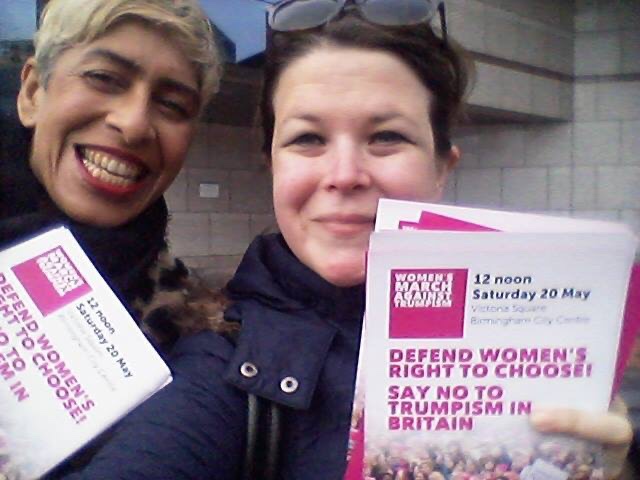
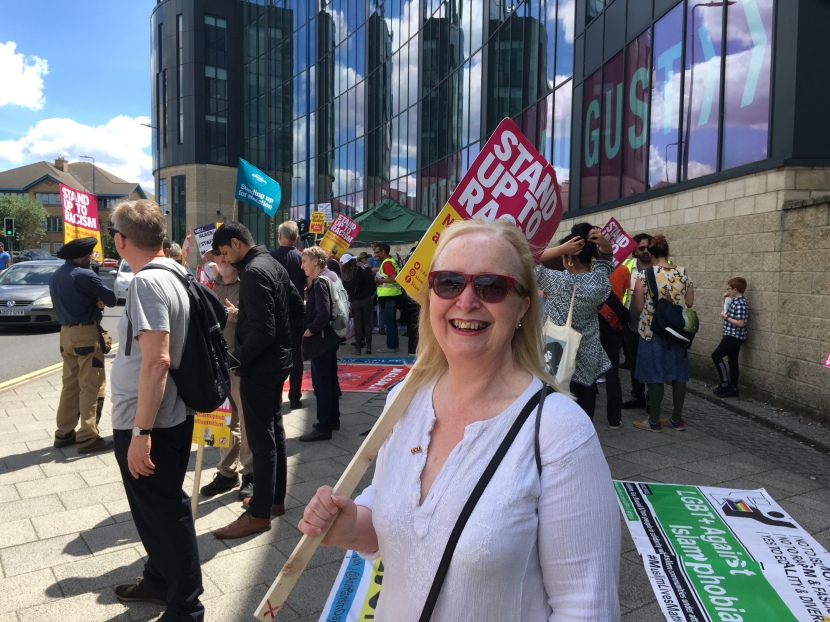


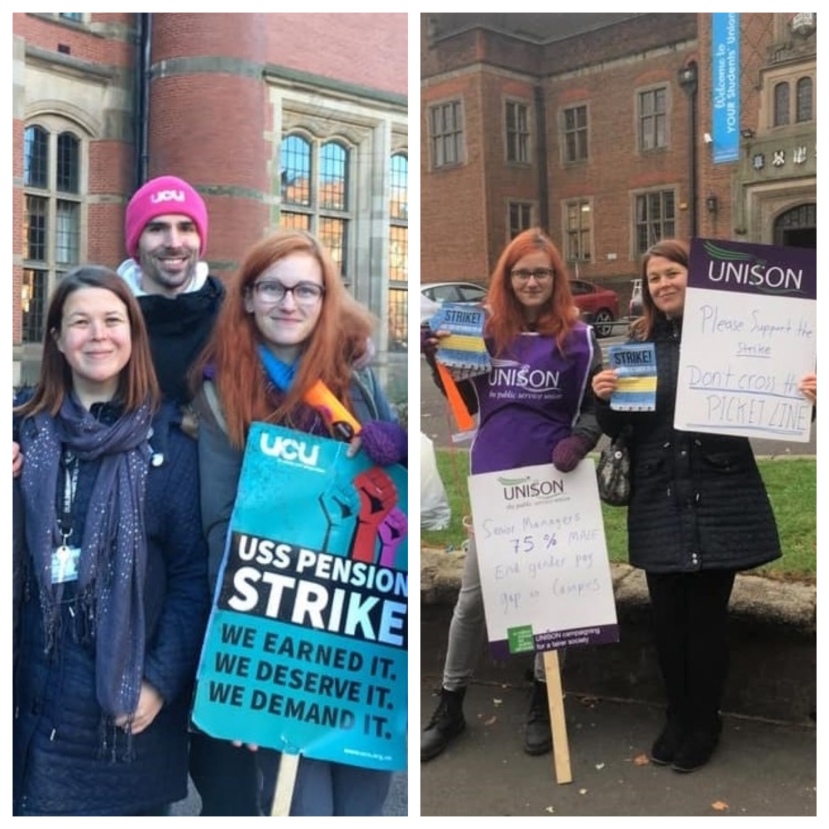



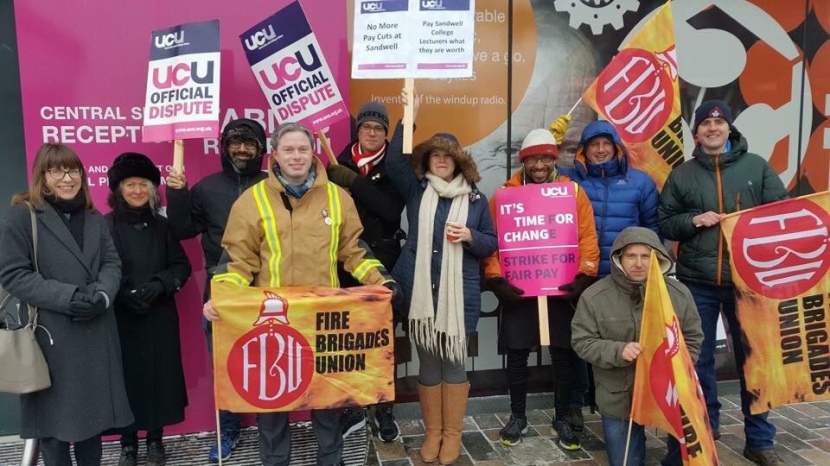



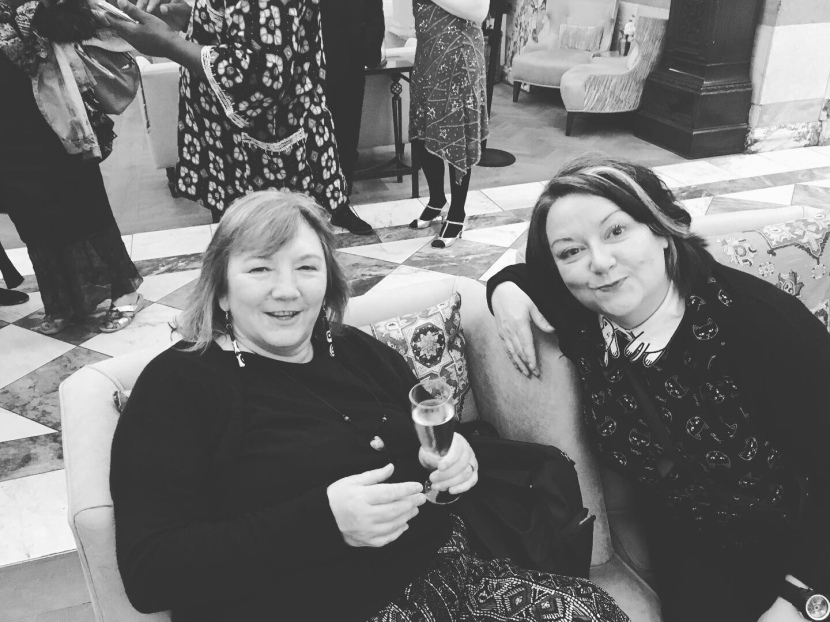 Cheryl Hedges, Vice Chair UCU West Midlands
Cheryl Hedges, Vice Chair UCU West Midlands
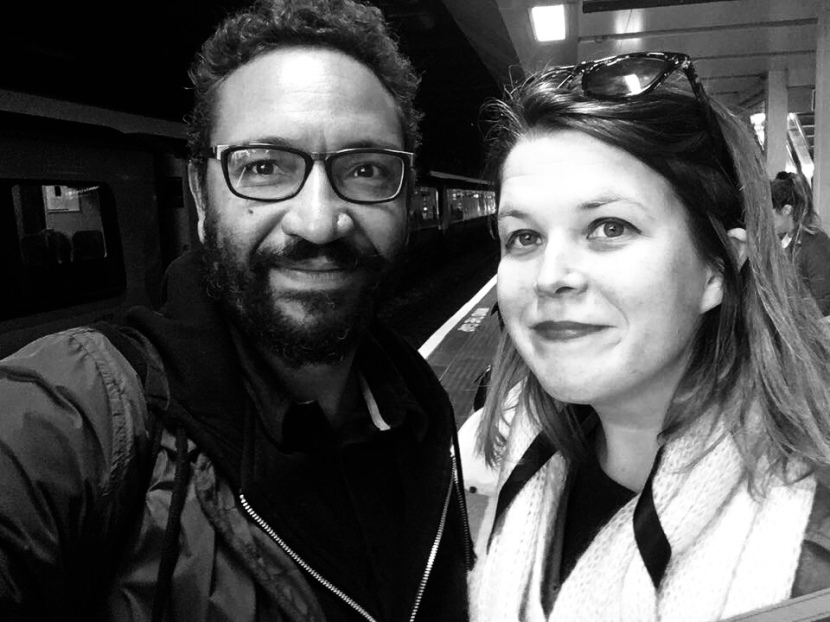

 Please comment below to add your name
Please comment below to add your name